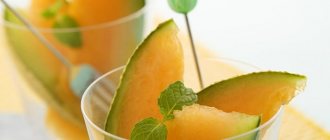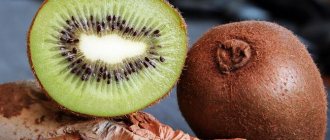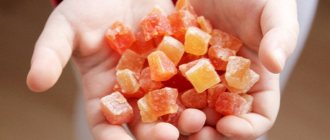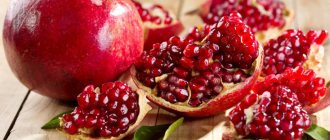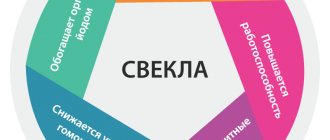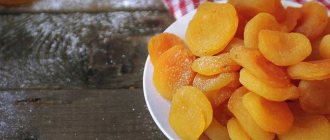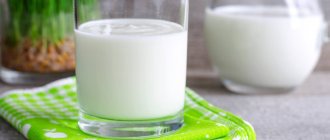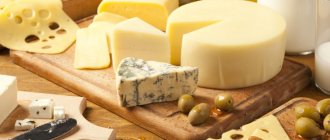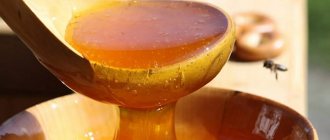The birth of a child forces a woman to reconsider her relationship with food. After all, from the moment the baby is born, food becomes not only nutrition for the mother, but also a source of breast milk. It is important that the foods consumed by a woman during this period are healthy, provide energy, promote growth and development, but do not cause the newborn to feel unwell.
If there are no questions about traditional gastronomy, then such valuable food of plant origin as nuts raises doubts. There are completely opposite myths about how healthy or harmful nuts are for breastfeeding. We will try to debunk them, provide a conclusive and detailed answer to the question: “Is it possible to eat nuts while breastfeeding?”
The effect of nuts on breast milk
Nuts, given their composition, the possibility of long-term storage in a protective natural shell, growing in ecologically clean areas with plenty of sun and clean water, are a wonderful product.
If a nursing mother systematically eats nuts as an additional source of nutrients, she benefits the baby, because there is more milk, its taste becomes richer, and its nutritional value is higher.
In addition, they have a positive effect on a woman’s body, exhausted by pregnancy and childbirth:
- stabilize the immune system;
- help fight stress;
- improve mood;
- improve overall well-being.
Attention! Nuts can and should be consumed while breastfeeding, introducing them into the diet gradually and with caution. It is impossible to assume that they are a panacea for all problems and diseases.
The benefits and harms of nuts
Nuts are a natural food product that has come down to us unchanged since ancient times.
One small fruit contains the following complex:
- necessary compounds: proteins, carbohydrates, fats;
- amino acids: omega-3, omega-6, omega-9;
- microelements: calcium, iron, selenium, copper, phosphorus, magnesium.
- vitamins: A, E, B.
Despite the high fat content (up to 70%), there is no danger of getting cholesterol plaques, as it contains light fats that have a positive effect on the body’s cardiac system. Vegetable protein containing arginine makes blood vessels elastic, eliminating changes in blood pressure.
Carbohydrates provide energy and allow you to cope with increased physical activity. Fiber helps cleanse the body and optimizes metabolic processes.
There are a great variety of nuts: peanuts, almonds, hazelnuts, walnuts, pine, cashews, pistachios, coconut. Each of them is not just nutritious, but helps prevent and fight various diseases: anemia, varicose veins, insomnia and migraines, diseases of the thyroid gland and digestive system, even cancer.
Nuts in reasonable quantities are a guarantee of good health. But you should be wary of possible negative effects, expressed primarily in allergic reactions: swelling, rash and diathesis. They can cause intestinal upset, thicken the blood, disrupt the functions of the liver and pancreas, and contribute to obesity.
Important! The quantity and degree of ripeness of the product matters, for example, unripe almonds contain poisonous hydrocyanic acid, and overeating nutmeg will lead to severe intoxication. Therefore, not only nursing mothers, but everyone can eat nuts, but in moderation!
Nuts and their benefits: studying the facts
Nuts are necessary and important. But why? What are their benefits for the baby and mother?
Nuts contain the maximum amount of vitamins, minerals, micro- and macroelements. Based on their natural rich material composition, their kernels are the first product for the preparation of medicines that boost immunity, as well as the main component for medicinal tinctures and ointments.
- Nuts contain a huge amount of vitamin C, the role and significance of which for a child’s body cannot be described in words. Its content in nuts is several times higher than, for example, in lemon or currants.
It is important to know
The younger the kernel, the higher the vitamin C content. Ripe nuts contain much less vitamin C.
- Plant proteins consisting of twenty vital and essential amino acids.
- Polyunsaturated fats.
- Juglone is an important antibacterial compound that protects both mother and child from colds and viral diseases.
- Tannins
- Micro- and macroelements: iodine and magnesium, potassium, zinc.
- Vitamins: mainly group B, as well as vitamins A, E, PP.
- Iron, of which there is a sufficient amount in the nut kernel, is easily absorbed by the child's body.
- Carotenoids.
- Essential oil.
Useful: Temperature during breastfeeding - can you breastfeed or not?
Nuts are undoubtedly a healthy product, but very high in calories. A third of its kilocalories comes from fat. The delicacy contains practically no carbohydrates, so a nursing mother should not worry that consuming them may change her body parameters. When breastfeeding, nuts are a must. Their main advantage is the ability to enrich milk with protein substances, amino acids important for growth and development, and beneficial unsaturated fatty carboxylic acids.
But there are other reasons why you should not give up eating nuts.
- Nuts have a sedative effect. They calm the baby's nervous system and have a beneficial effect on sleep.
- Improves the performance of the heart muscle.
- Strengthen the immune system.
- Protect from the effects of negative factors, such as radiation.
- They have a diuretic effect. If after childbirth your swelling does not go away, you can eat nuts, they will definitely help.
- Remove toxins.
- Enrich the body with oxygen. Women with postpartum anemia simply need to include nuts in their diet.
- Relieve fatigue and prevent depression.
- Improves brain function, improves memory.
- They are actively fighting mastopathy.
The conclusion suggests itself is the following: nuts are an important food product in the menu of a nursing mother, and the answer to the question “can I eat nuts during lactation?” obvious. It’s not just possible, but necessary.
There is a legend according to which the nut is a product that increases lactation. Why legend? Yes, because from a scientific point of view there is no evidence for this theory. Lactation is not increased, but the fat content of milk is increased. This is a fact, and you can't argue with it. And increased lactation when consuming kernels is more of a placebo effect, that is, self-hypnosis, a so-called psychological trick.
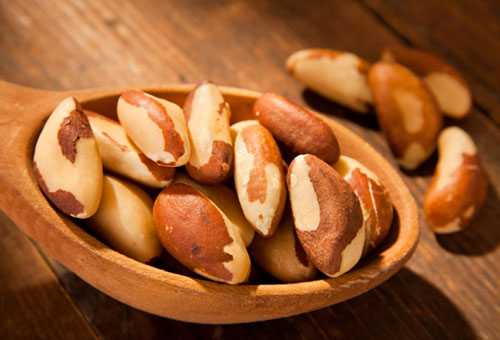
What nuts can you
In order to avoid possible risks, it is worth highlighting which nuts should be consumed for a nursing mother in the first month of breastfeeding, and which ones should absolutely not be consumed (even taking into account their benefits).
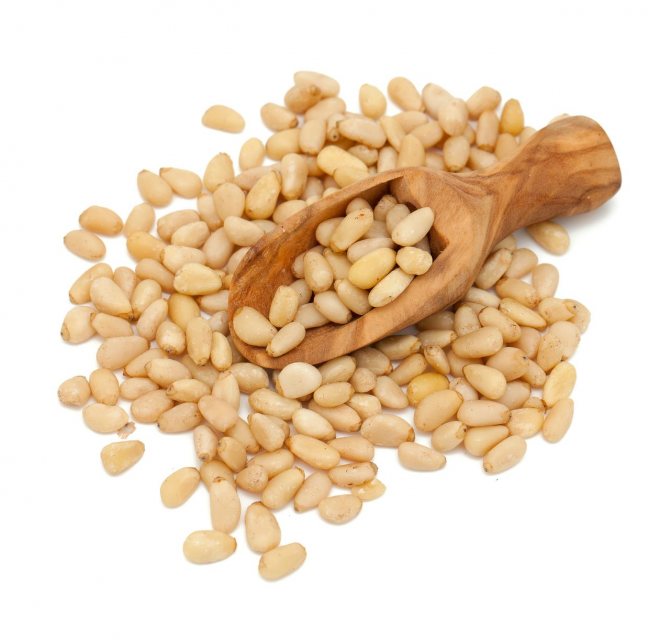
Cedar pine seeds - pine nuts, popular due to their gastronomic and medicinal properties, are the most harmless. They do not cause allergies, have a positive effect on the mental and physical development of children, and help the mother recover after childbirth.
By starting to take one teaspoon of cedar grains a day, mom provides herself with a moment of pleasure, after which her complexion will improve, her skin will tighten, and cracks on her nipples will disappear. Thanks to a positive emotional mood, there will be more milk, and its taste will improve.
Advice! It is recommended to eat 50 grams of kernels per day between meals, without mixing with other protein products.
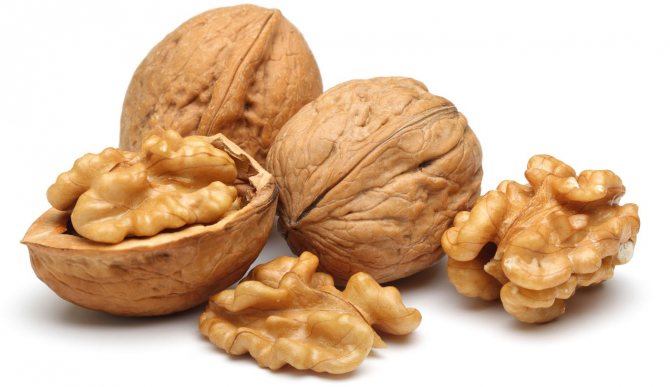
Walnuts are not a contraindication when breastfeeding a newborn. It promotes good lactation and improves the quality of breast milk, affecting its fat content. Therefore, in the first month of life, when the baby is weakened, walnuts in the diet of a nursing mother will allow him to gain weight, form a strong immune system, and strengthen the intestines. And they will help the mother fight fatigue and postpartum depression.
What nuts are not allowed?
Hazelnuts during breastfeeding, as well as peanuts, due to the possibility of causing severe anaphylactic shock in the child and mother, are prohibited during lactation.
Peanuts are commonly called nuts, although they belong to the legume family. Due to the nature of cultivation, it can be infected with pathogenic fungi, which cause severe poisoning. Its beneficial properties: antioxidant, immune-strengthening are best used after lactation.
During breastfeeding, hazelnuts, which belong to the category of highly allergenic products, are known for their taste and nutritional properties, and are a rather difficult product to digest. Therefore, the consequences of its use: bloating of the child’s tummy, colic, diarrhea.
Three nuts per day will not greatly affect the usefulness of milk and the woman’s recuperation, but can seriously impair the baby’s health. Answering the question about whether hazelnuts can be consumed while breastfeeding, we answer that it is not worth the risk.
Almonds have a lot of useful properties, as well as unconditional advantages. Its composition resembles the periodic table in terms of the amount of vitamins and microelements. When consumed, the amount of breast milk produced increases and it becomes tastier. But, in addition to being a strong allergen for mother and child, almonds may contain the toxic substance amygdalin, which can be harmful to health.
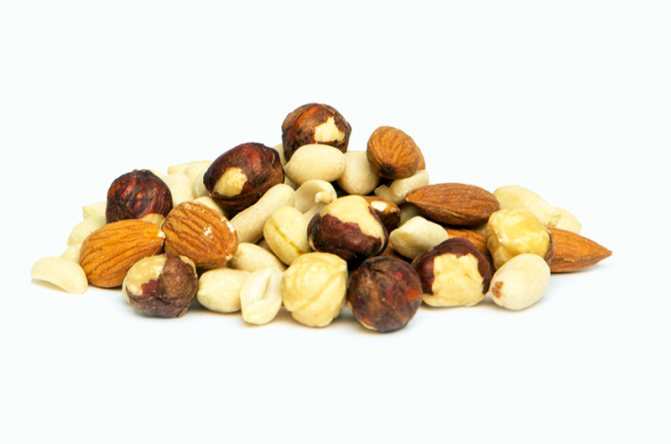
Advice! When the diet is established and the child adapts to various foods, you can start consuming almond grains by pre-heating them and sprinkling them with sugar for greater effect.
While breastfeeding, you should not get carried away with exotic types of nuts: Brazil, coconut, cashew. The first reason: high probability of allergies. The second reason: their delivery from distant countries is associated with many negative factors. Therefore, culinary experiments with them should be postponed.
Rules for eating nuts during lactation

To enhance milk production, women are advised to eat plenty of food. But overeating does not give the desired results, but only adds extra pounds to the mother. Just 500 extra calories in food is enough to keep your child full.
If the milk is thin and the baby does not eat enough, then nuts during breastfeeding will help the baby gain weight. You need to start consuming fruits with a minimum dose - one nut for breakfast. This will help to look at the baby’s condition and his body’s reaction to the new product. Dr. Komarovsky advises mothers:
- Consume no more than 30 g of high-calorie product per day.
- When breastfeeding, exclude the type of nuts to which close relatives have shown an allergy.
- If the quality of the fruit is in doubt, it is better not to use it, so as not to endanger the body of the mother and baby.
- During lactation, you should not try several varieties at once, otherwise the baby will develop diarrhea. The next variety should be tried a week after the first.
- If your baby develops a rash or indigestion, you should take a break and try nuts again in a few weeks or a month, when the digestive tract is working better.
On a note. The natural substances contained in nuts are necessary for mother and child. Amino acids and protein, unsaturated fatty acids, vitamin and mineral complex, antioxidants are important for the restoration of the mother’s body and the full development of the child.
What varieties can
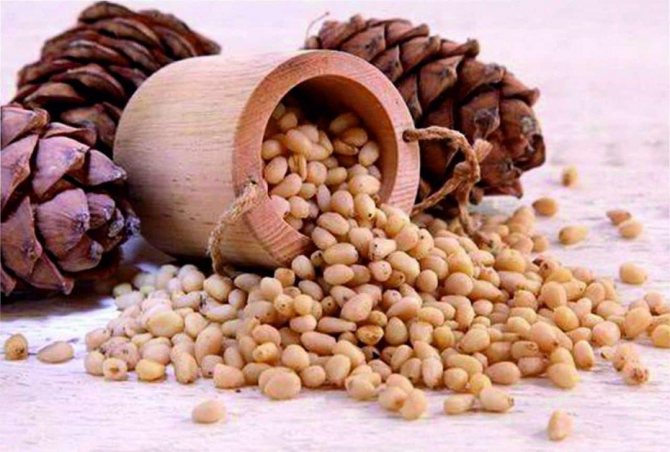
Most varieties of the Nut genus are beneficial for breastfeeding. You should start with a small portion of walnuts and pine nuts, as they are digested better than others and are safe (hypoallergenic).
While feeding the baby, mommy can eat cashews and almonds, but with caution. They are able to relieve fatigue and remove toxins from the body, restoring appetite. They are recommended in the diet if the child was born weak or premature. But if the consumption norm is violated, the baby experiences bloating and colic. An allergic reaction in the form of a rash or redness of the skin is also possible.
It is dangerous to introduce hazelnuts and peanuts into the diet of a nursing mother. These are allergens that can lead to anaphylactic shock. A fungal infection spreads well on the surface of peanuts, which leads to severe intoxication of the body. If peanuts are needed in nutrition, they should be well roasted.
Hazelnuts are one of the high-calorie foods. When it is consumed by the mother, the baby develops active gas formation, colic and stool upset are observed. The baby’s digestive system is not yet able to digest complex compounds.
Exotic fruits (Brazil nuts, coconut) are not allergens, but due to their origin, their reaction to a fragile organism is unpredictable. If a nursing mother gravitates towards such products, then a small portion for testing will not cause harm.
On a note. The quality of the nuts is important: they must be fresh and well dried, but not fried. Only peanuts can be roasted and roasted to destroy fungal spores from their surface.
How to enter and how much to eat
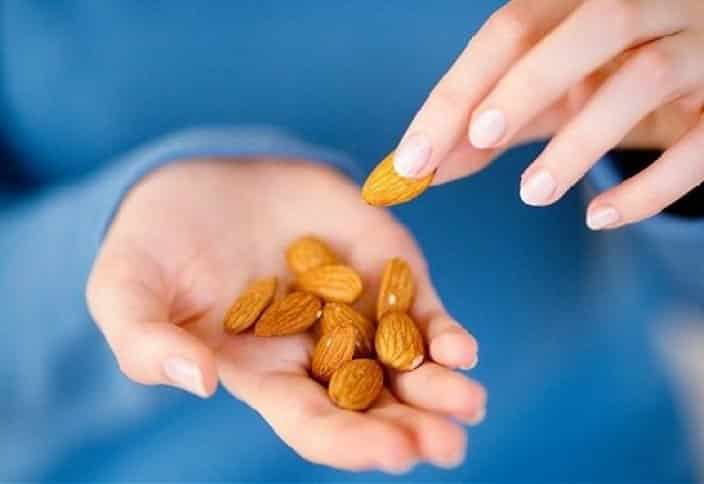
One nut of one type can be introduced into the diet only from the second month, when the baby gets stronger and his digestive system begins to form, capable of assimilating a high-calorie product.
Up to six months, 3-5 nut fruits are enough to increase the calorie content of milk and saturate the baby’s body with useful components. From 6 months, mommy can eat 5-8 good quality nuts.
Advice. You need to see how the baby’s body reacts to this or that type of nut, and eat only those varieties that do not cause side effects. It is advisable to eat the nut kernel in the morning to monitor the baby’s condition throughout the day.
In the first month of feeding
In the first month of the baby's life, the mother must adhere to a strict diet and feed the baby hourly. Milk during this period still contains some colostrum and remains thick and fatty.
A harmless, tiny portion of nuts increases the viscosity of breast milk. The baby not only has difficulty sucking it, but also has difficulty digesting it. His digestive system is underdeveloped, and enzymes that can “work” with high-calorie foods have not yet been developed. At first, you should not try nuts to avoid problems with the child’s digestion.
On a note. It is generally accepted that nuts enhance lactation. This is a mistaken opinion: when they are eaten, “milk rivers” are not formed. But the nutritional value and calorie content actually increases. Lactation is increased by decoctions of caraway seeds, lemon balm, anise, fennel and some fruit mixtures with nuts.
Rules for eating nuts
When introducing additional products into your daily diet in order to increase the quantity and quality of milk, a nursing woman must strictly follow the recommendations for consumption:
- Eat nuts as a separate product or adding them to cooked dishes no earlier than the baby is three months old.
- You should start with the safest nuts - pine nuts.
- Introduce gradually from a small amount - 10 grams.
- Closely monitor your child’s own reactions and well-being.
- In case of negative manifestations, stop taking.
- Do not mix different types and varieties.
- If parents in the family suffer from allergies or asthma, in order to avoid critical moments, it is better to replace nuts with a safer source of nutrients.
- In case of chronic diseases in the mother associated with the pancreas, gall bladder or liver, nuts cannot be eaten, even if there is a desire to make the child better.
- Purchase products from trusted suppliers, preferably in sealed packaging with a valid shelf life.
It is known that many who care about the health of their offspring are interested in whether hazelnuts can be consumed during breastfeeding in the first month. Not only hazelnuts, but any nuts should not be eaten during the first month of breastfeeding.
Harm from nuts
Can you eat hazelnuts while breastfeeding? If consumed in doses that exceed the daily norm, the nut can cause:
- exacerbation of liver and pancreas diseases;
- increase in body weight of a nursing mother.
After all, the nutritional value of hazelnuts (100 g) is 704 kcal.
The product is difficult to digest. When eating hazelnuts during breastfeeding, they complicate the digestion process. A woman may experience bloating.
To achieve only benefits from nuts, you need to consume them in acceptable quantities. It can also lead to an allergic reaction.
It is prohibited to eat hazelnuts in the following cases:
- with spasms in the blood vessels of the brain;
- in the presence of skin diseases: psoriasis, eczema and neurodermatitis;
- due to individual intolerance to the product.
In such situations, a nursing mother should completely avoid eating hazelnuts.
Recipes with nuts while breastfeeding
Considering that pine nuts are the most harmless for breastfeeding, we offer recipes that will delight the mother with their taste and speed of preparation.
Salad “Ideal option”
Products:
- A bunch of lettuce leaves or Chinese cabbage;
- Carrot;
- Cucumber;
- Tomato;
- Boiled chicken breast;
- Fresh herbs;
- Pine nuts 50 grams.
- Vegetable oil 2 tablespoons.
Preparation:
Wash all the vegetables and greens and let them dry. We tear the salad with our hands, grate the carrots on a coarse grater, cut the remaining vegetables and meat into strips. Carefully place on a plate, pour over vegetable oil, sprinkle with nuts. Those who cannot live without salt add salt. Use immediately.
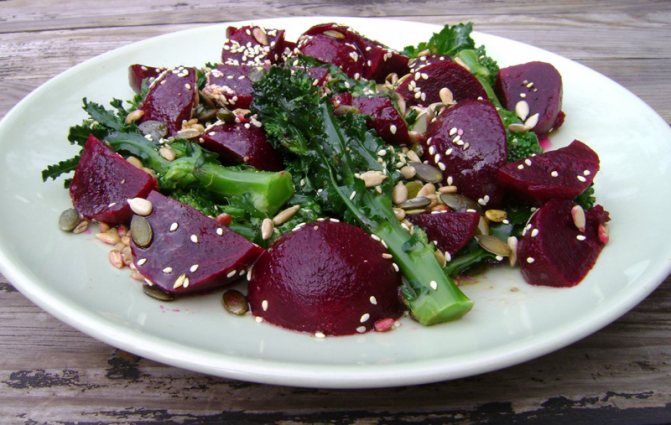
Exotic dessert
Required:
- 2 bananas;
- 2 oranges;
- 1 apple;
- 100 grams of raisins and dried apricots;
- a jar of yogurt;
- cedar nuts - 100 grams.
Preparation:
- Pour hot water over dried apricots and raisins for 10 minutes.
- Drain the water, dry the dried fruits, finely chop the dried apricots.
- Peel the orange, disassemble into slices, cut out the pulp.
- Remove the peel from the apple and cut into cubes.
- Peel the banana and blend with the nuts in a blender.
- Layer layers of fresh fruits, dried fruits, and banana-nut mixture.
- Pour yogurt on top.
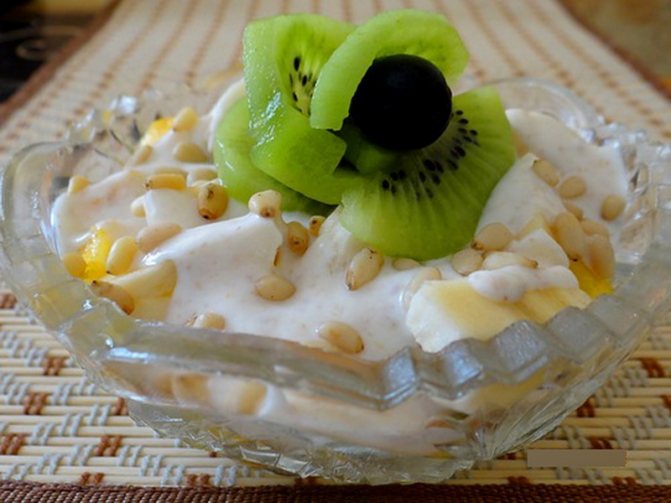
Tea Tunisian style
Ingredients:
- Water - 200 grams;
- Green tea - 2 teaspoons;
- Cedar kernels - 1 teaspoon;
- Honey - 1 tablespoon;
- Fresh or dry mint leaves.
Brewing:
- Pour the tea leaves into a metal teapot and fill with cold water.
- Place on the stove and bring to a boil.
- Add mint, honey.
- Let it brew for 20 minutes.
- Pour tea into a cup and sprinkle nuts on top.

